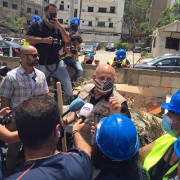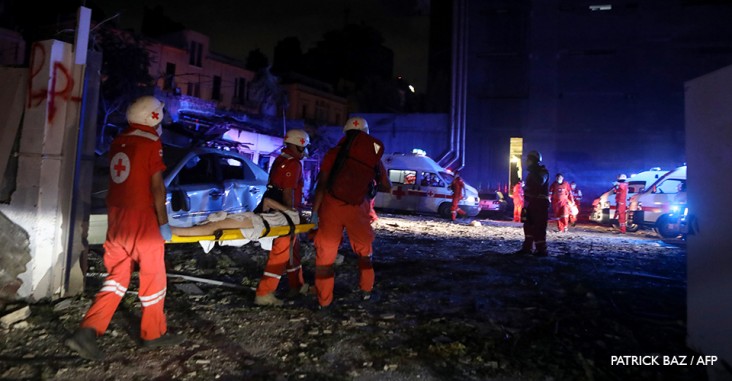Speeches Shim
Support for faith-based organizations has long been one of USAID's policy priorities, not only in the Middle East region but around the world. Working with these types of organizations with extensive on-the-ground contacts and expertise is part of a new strategy that USAID is undertaking. In 2019, we launched our new partnership initiative, what we call NPI, in Northern Iraq. It was the first time USAID has worked directly with local groups in nearly 20 years. We were looking for ways to expand similar programming and grow our partnerships with civil society groups and faith-based organizations across the region, including Lebanon.
As you may have heard, the United States Government so far has provided more than $18 million in humanitarian assistance from USAID and the U.S. Department of Defense to aid the people of Lebanon. This funding brings the total humanitarian assistance provided by the American people in Lebanon to nearly $594 million over the last year and a half. While in Beirut, I got an initial assessment from our disaster assistance response team, who is leading the U.S. Government’s humanitarian response in this case on the critical needs. Priority needs include food, health, and shelter. The explosions left approximately 2,500 homes uninhabitable, damaged or destroyed more than a dozen hospitals and health centers, disrupted food imports at the port, and destroyed shops and businesses that families have relied on for generations for their livelihoods. I had the honor of speaking with some of the people affected when I visited the Port of Beirut, the site of destruction. I met first responders who lost colleagues who were on the site when the second explosion occurred.

U.S. Agency for International Development (USAID) Acting Administrator John Barsa visited the Lebanese Republic from August 10-12, 2020, to assess the situation on the ground following the catastrophic explosion at the Port of Beirut and observe the efforts to respond to the disaster.
This week U.S. Agency for International Development (USAID) Acting Administrator John Barsa will travel to Beirut, Lebanon, where catastrophic explosions at the Port of Beirut killed nearly 150 people and injured thousands more and devastated the city center.
National Security Council
Under the direction of President Donald J. Trump, the United States is delivering critical emergency aid to Lebanon following Tuesday’s horrific event in Beirut. The first wave of United States relief, coordinated between the U.S. Embassy in Beirut, the Department of Defense, the Department of State, and the U.S. Agency for International Development (USAID) includes food, water, and critical medical supplies.


Comment
Make a general inquiry or suggest an improvement.